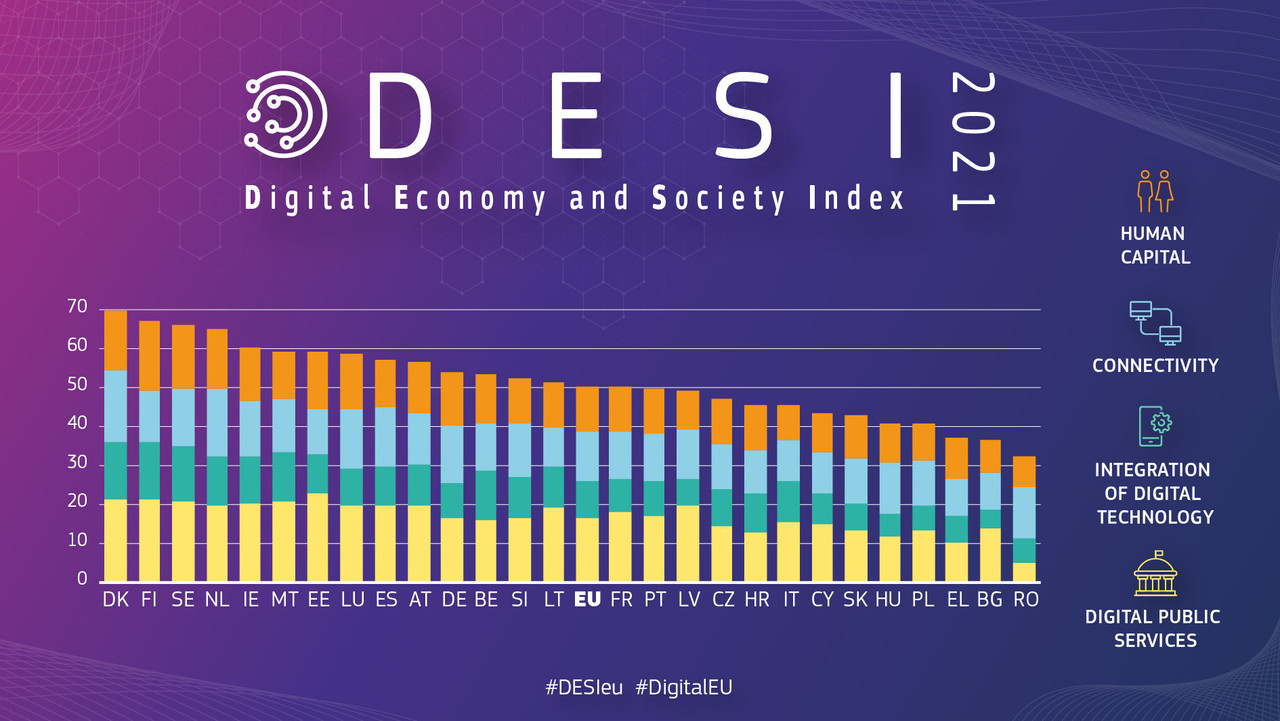The European Commission since 2014 has been monitoring the digital progress of EU member countries through the Digital Economy and Society Index (DESI). The report aims to help governments identify priorities for policy decisions in key areas: human capital, connectivity, integration of digital technology and digital public services.

Luxembourg scores 19.84 on digital public services, 9.85 on integration of digital technology, 15.24 on connectivity and 14.04 on human capital Photo: European Commission
Highlights from the index
67%: Luxembourg ranks sixth in the EU’s digital society index on human capital, with above-average scores on all three digital literacy indicators. But 67% of companies trying to recruit ICT specialists reported difficulties in filling vacancies, above an EU average of 55%.
4th: The grand duchy is fourth in the EU on connectivity, with the country almost fully covered by fast fixed broadband networks and broad availability of very high-capacity networks.
8%: Companies in Luxembourg are lagging behind the EU when it comes to e-commerce, with only 9% of SMEs selling online, compared to 17% across the member countries. On the other hand, more businesses use AI, big data and electronic information sharing.
97: Luxembourg scores 97 out of 100 points in the provision of digital public services to businesses. Nearly two-thirds of individuals (64%) use the internet to interact with public services.
Talent is hard to find
The head of employer service at jobs centre Adem, Laurent Peusch, discusses ICT training.
Cordula Schnuer: More than two thirds of companies in Luxembourg report difficulties to recruit ICT staff. Are there any kinds of roles in particularly high demand?
Laurent Peusch: What we see is based on our numbers and the vacancies posted with us. We know that there are more. Developers are in the lead, consultants, customer relationship management, but also APIs, analysts and cybersecurity. Something that’s more transversal is project management. You can ask whether that’s an ICT job or more linked to digital skills. For me, it’s both.
Even for roles that aren’t specifically in ICT, digital skills are becoming increasingly important. Where are the biggest gaps?
Slowly but surely, we are reaching a point where there are hardly any jobs where you don’t need digital skills. There are things that are required everywhere. Microsoft Office is basic, but we still see people who don’t know the difference between Word and Excel. IT skills were maybe previously tied to white-collar jobs, but it’s industry 4.0. There is no sector where IT skills aren’t needed.
Adem launched the Future Skills Initiative to adapt its programmes to better meet the needs of the market. Is it possible to become an ICT specialist later in your career?
In the Coding Jobs programme, we train junior developers in four months in different programming languages. There are people in their mid-40s who have a whole career behind them. Our training doesn’t substitute a bachelor or master’s degree. We reskill to a certain level and upskill.
Expectations are rising
Jobs in ICT increasingly require higher education degrees, with the number of roles available to applicants with secondary school or vocational diplomas shrinking as companies look for highly skilled staff.
This article first appeared in the of Delano magazine. It has been edited for publication on Delano.lu
